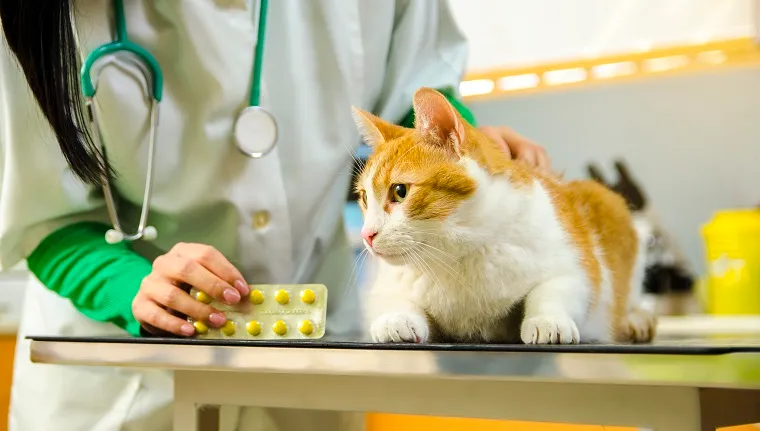Hello, fellow cat aficionados and concerned kitty caretakers! Today, we’re delving into the world of Meloxicam, a medication that can bring relief to our feline friends when they’re feeling a bit under the weather. From its uses to dosages and potential side effects, we’ve got you covered with insights from veterinarians, government guidelines, and a sprinkle of feline wisdom.
Unraveling Meloxicam
A Helping Hand for Pain
Meloxicam is a non-steroidal anti-inflammatory drug (NSAID) often prescribed to cats to relieve pain and inflammation associated with various conditions, such as arthritis or post-surgery discomfort.
Vet’s Choice
Your veterinarian will determine if Meloxicam is suitable for your cat’s specific needs. It’s essential to follow their guidance, as they’ll consider your cat’s overall health and any potential contraindications.
Uses of Meloxicam
Arthritis Alleviation
Arthritis is a common issue in senior cats, and Meloxicam can help manage their discomfort, allowing them to move more comfortably and enjoy a better quality of life.
Post-Surgery Pain Relief
After surgical procedures, cats may experience pain and inflammation. Meloxicam can aid in their recovery by reducing these discomforts.
Pain from Injuries
Whether it’s a sprain, strain, or another type of injury, Meloxicam can provide relief from pain and swelling.
Dosage Guidelines
Veterinarian’s Expertise
Your vet will determine the appropriate Meloxicam dosage based on your cat’s weight, age, and the specific condition being treated. It’s crucial to administer the medication exactly as prescribed.
Administering Meloxicam
Meloxicam is available in liquid and tablet forms. Your vet will choose the best option for your cat, and they’ll show you how to administer it correctly. Never attempt to adjust the dosage or frequency without consulting your vet.
Potential Side Effects
Generally Well-Tolerated
When used as directed, Meloxicam is considered safe for cats. However, like any medication, it can have side effects, although they are relatively rare.
Possible Side Effects
Common side effects may include vomiting, diarrhea, or a decreased appetite. In some cases, more severe reactions, such as gastrointestinal bleeding, can occur. It’s crucial to contact your vet immediately if you notice any unusual symptoms.
Not for All Cats
Meloxicam may not be suitable for cats with specific medical conditions or those taking certain medications. Always provide your vet with a comprehensive medical history to ensure your cat’s safety.
Conclusion
In conclusion, Meloxicam can be a valuable tool in managing pain and inflammation in cats. With your veterinarian’s guidance, it can provide relief and comfort to your furry friend, whether they’re dealing with arthritis, recovering from surgery, or experiencing pain due to an injury. Always adhere to your vet’s recommendations, and be vigilant for any potential side effects. Here’s to a happier, more comfortable, and healthier life for your beloved feline companion!
- Best LeadsGorilla Alternatives for 2025 - April 19, 2025
- Best Coldlytics Alternatives for 2025 - April 19, 2025
- Best Brevo Alternatives for 2025 - April 18, 2025



